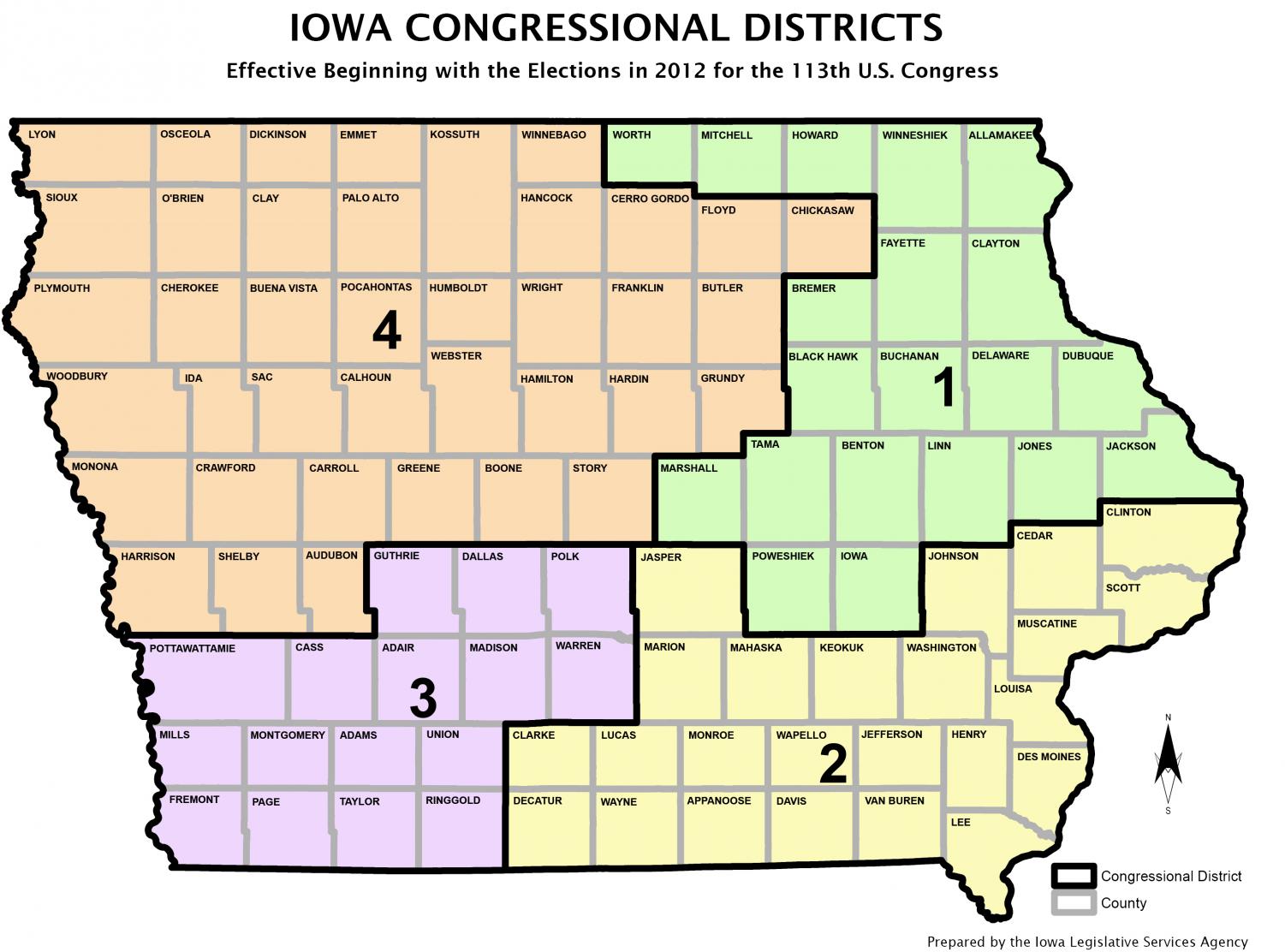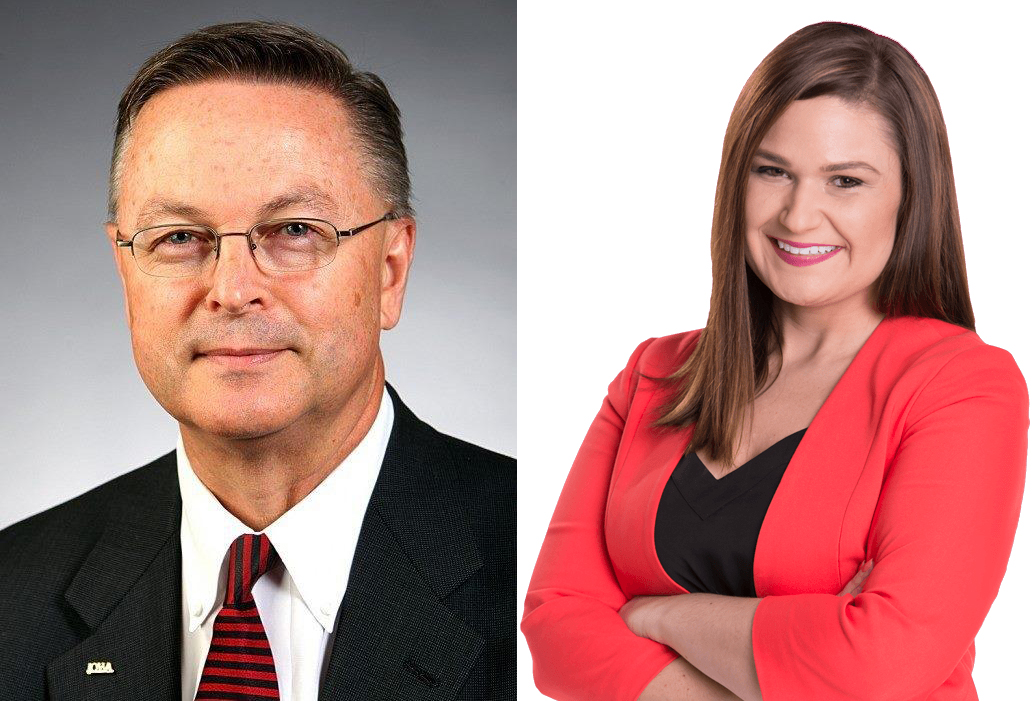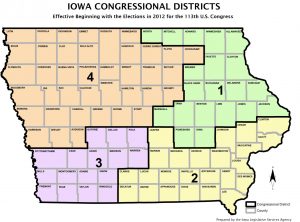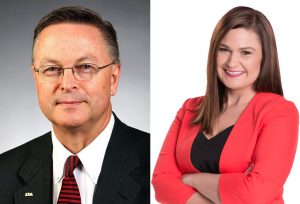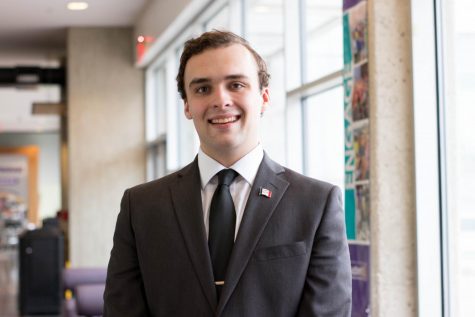Congressional candidates to debate at UNI
Sep 13, 2018
UNI will soon host a debate between the two major Iowa 1st Congressional district candidates, Democrat Abby Finkenauer and Republican Rod Blum. The two will debate on October 5th from 7:00-8:00 p.m. in UNI’s Gallagher Bluedorn Performing Arts Center. The debate will air on KWWL, and will be moderated by longtime KWWL anchor Ron Steele.
UNI students can obtain free tickets to the debate via the UNITIX program at the Gallagher Bluedorn Performing Arts Center, the McLeod Center, and the Maucker Union.
The debate is the first of two debates to which the Finkenauer and Blum campaigns agreed to conduct before the election on November 6th.
Polling in the historically swingy district is tight, but UNI political science professor Justin Holmes is skeptical the debate will tip the race to one candidate.
“Debates, on the whole, there’s not great evidence that they’re all that persuasive… if you look at polling that’s done after them, typically Republicans think the Republican candidate won and Democrats think the Democratic candidate won,” Holmes said. “It could make a little bit of a difference for some individual voters, but on the whole, we couldn’t expect to see a big race changer.”
UNI political science professor and author of KWWL’s “Politics in Iowa” blog Chris Larimer agreed that debates rarely persuade large numbers of viewers but said that the debate may have impact on a small number of truly nonpartisan voters.
“A question is the number of independent voters out there, truly independent voters. We know that number is probably in the single-digits. I’ve seen estimates that around 5-7 percent of the population is truly undecided. For those voters it might make a difference,” said Larimer.
He continued, “I think what’s different about this particular district is the proportion of voters that are registered with no party. Generally, it’s about 37-38 percent, which is higher than the other three districts in the state. That bloc is going to swing the election. What we don’t know is what proportion of those voters registered as no party actually lean one way or the other. If you lean towards one party, you tend to vote like a partisan.”
Holmes said that President Trump will certainly come up during the debate and is likely a substantial part of Blum’s political calculus.
“Blum, he’s in this challenging position, being in the party of an unpopular president[…] Midterms are always bad for the incumbent president’s party in Congress[….]On the one hand, Republicans are pretty much all in with Trump at this point, rank-and-file Republicans. They’re not going to like it if he tries to put distance between himself and the president. On the other hand, independents, you need to swing some of those folks over, they’re not going to be happy if he sticks in with the president too much.”
“I don’t know if there’s any way to thread that needle,” Holmes concluded.
Larimer said that Finkenauer is also likely considering Trump in her messaging, saying, “My guess is, she is going to try to equate Rod Blum with the Trump administration, that he is directly in line with the Trump administration, I say that because President Trump’s approval ratings are low, he’s a very polarizing figure, so I think for the Finkenauer campaign that’s largely what they’re going to do.”
The 2017 tax cut bill, healthcare and tariffs are other topics that are likely to be discussed during the debate.
Holmes believes that the national political environmental favors Finkeanuer, saying, “Blum is a Republican holding a seat in a slightly blue district[…] he was first elected in 2014, that was a big wave year for Republicans, and as is often the case in wave years, a party wins in places we wouldn’t expect them to hold[…..] The 1st district is Democratic, +2ish (points), it’s not a middle of Chicago, Los Angeles, or San Francisco type district but it is a challenge for him, this is a district that has been targeted a lot, the first time he won in a year that was pretty favorable to Republicans, won reelection in a year that was pretty favorable to Republicans (2016). In a year that’s favorable to Democrats, the national trends will be working against him.”
Larimer believes the race will be close, saying, “We’re one of the handful of races across the country that is truly, truly a toss-up or extremely competitive, it’s so hard to find those races.”
As of press time, The Cook Political Report listed the race as “Lean Democratic,” and RealClearPolitics listed it as a ‘Toss-Up.” Political data-crunching site FiveThirtyEight gives Finkeanuer an 83.1 percent chance of winning, and estimates a 16.9 percent chance of a Blum victory. A recently released Emerson poll showed Finkenauer ahead of Blum 43 percent to 38 percent, though the poll had a 6.6 percent margin of error.
“I don’t know how much you’re going to persuade voters, but seeing the candidates up close, seeing them both on the same stage, is important, because there are a number of issues there that the Trump administration is talking about that directly affect Iowa,” said Larimer. “It’ll be interesting to hear the candidate’s thoughts on that.”

